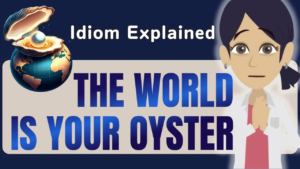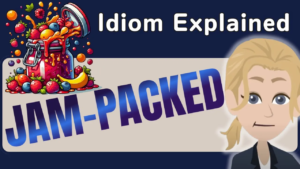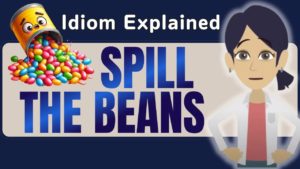Have you ever heard someone say “I’m in a pickle” and felt entirely puzzled? This phrase might conjure an image of someone stuck in a giant jar of brine. Yet, it has nothing to do with actually being inside a cucumber. Understanding idioms like this can be challenging when you are learning English, but mastering them adds depth to your vocabulary and makes your conversations more lively. Below is a comprehensive guide to help you grasp “I’m in a pickle,” its origin, and how you can use it effectively in everyday situations.
Communicating effectively in English often hinges on understanding idiomatic expressions. These phrases can be colorful, fun, and at times baffling because they don’t follow literal meanings. “I’m in a pickle” is one such idiom that means you’re in trouble or facing a tricky situation. This post provides insights into why this phrase is used, its historical roots, and multiple examples to show how to integrate it into daily life. By the end, you will be able to use “I’m in a pickle” with confidence and enrich your conversations
Why Idioms Matter
Idioms are essential for several reasons:
- Fluency and Authenticity: Using idioms correctly helps you sound more natural in English.
- Cultural Insight: Many idioms come with historical and cultural references.
- Enhanced Expression: Idioms can capture complex emotions or situations succinctly, making interactions more engaging.
When you incorporate expressions like “I’m in a pickle” into conversations, you show not only your linguistic skill but also an understanding of English-speaking cultures.
Understanding “I’m in a Pickle”
Literal Meaning
- A pickle is a cucumber soaked in brine or vinegar.
- While delicious in certain dishes, this literal definition has no direct bearing on the idiom’s meaning.
Figurative Meaning
- “I’m in a pickle” translates to being in a difficult, tricky, or uncomfortable situation.
- Think of it as being stuck in a spot where you need a solution, and getting out may require creativity or help from others.
Historical Origin
- The phrase dates back to the 16th century, showing its longstanding presence in English.
- It gained popularity thanks to Shakespeare, who used a version of it in The Tempest.
- The word “pickle” may trace its roots to the Dutch term “pekel” (meaning brine or vinegar), reflecting its early culinary associations.
Note: Some sources suggest that “in a pickle” might appear in other languages, but those references may differ culturally and linguistically.
Potential Misunderstandings
- Literal Confusion: Hearing “I’m in a pickle” can cause someone to picture a person inside a vinegar-soaked jar. This literal misinterpretation leads to humorous moments and highlights the non-literal nature of idioms.
- Context Clashes: In formal settings, such as a business meeting, saying “I’m in a pickle” might sound too casual, whereas in casual conversation, it fits just fine.
- Word Mix-ups: Expressions like “in a jam” or “in a bind” have similar meanings, so mixing them up is common. While they convey the same idea, each phrase has its own nuance.
Example Applications
Below are some everyday scenarios where “I’m in a pickle” might pop up:
- Forgotten Keys:
- “I’m in a pickle because I left my keys at the office and can’t get back in.”
- Double-Booked Meetings:
- “I realized I scheduled two important meetings at the same time. Now I’m in a pickle and have to reschedule one.”
- Last-Minute Travel Problems:
- “My flight was canceled, and I have an urgent appointment. I’m in a pickle because I need to find another way to get there quickly.”
- Social Commitments:
- “I promised to attend two gatherings on the same night. I’m in a pickle about which one to choose.”
Each of these examples underscores the idiom’s meaning: a problematic situation that needs a clever fix.
Case Study: John’s Job Interview
Sometimes, understanding an idiom becomes easier when you see it in a real-life context. Take John, for instance:
- Running Late:
John got stuck in heavy traffic before his job interview. Picture an unexpected parade slowly blocking the road when he was already pressed for time. - Forgotten Resume:
Upon finally arriving, he discovered he had left his resume at home. Searching every pocket and bag turned up nothing. - A Quick Explanation:
Embarrassed, he had to tell the interviewer, “I’m in a pickle—I left my resume behind.” Although the phrase itself was lighthearted, the situation was serious, requiring quick thinking. - Outcome:
John’s honesty and calm approach helped him navigate this predicament. While not ideal, being direct about his misstep showed problem-solving ability under stress.
This scenario shows “I’m in a pickle” in action: a testing moment that demands composure and flexibility.
Real-Life Example: Lost Passport
Travel mishaps are among the most stressful. Imagine losing your passport abroad:
- Immediate Panic:
Realizing a critical document is missing can send anyone into a panic. Saying, “I’m in a pickle” perfectly fits this alarming situation. - Miming the Problem:
Without knowing the local language perfectly, explaining the predicament to authorities or embassy staff can feel overwhelming. - Resolution Steps:
- Contact the Embassy: Provide any available identification.
- File a Report: Document the loss with local police or airport security.
- Stay Composed: Navigating bureaucracy demands patience.
- Lesson Learned:
Keeping extra passport photos and photocopies of documents can prevent such problems from escalating. Still, if you do end up “in a pickle,” remember there is usually a way out with proper help.
10 Fun Facts About “I’m in a Pickle”
- Long-Standing History: The expression has existed for centuries, reflecting its robust presence in English.
- Culinary Roots: It emerged from references to brine or vinegar—uncomfortable mixtures that mirror difficult situations.
- Shakespeare’s Influence: Early popular usage can be attributed to his plays, giving it a literary flair.
- Similar to “In a Jam”: Both idioms point to challenges requiring solutions.
- Possible Dutch Connection: The term “pekel” highlights a European link.
- Global Curiosity: While “in a pickle” is quintessentially English, many languages have their own unique phrases for trouble.
- Comedic Appeal: Writers often use this idiom in humor or lighthearted stories, adding a playful twist.
- Versatility: It suits everyday conversation, professional contexts (used sparingly), and storytelling.
- Evocative Imagery: It effortlessly paints a picture, making it memorable.
- Broad Application: Whether you forgot your wallet or missed a flight, “in a pickle” can describe numerous dilemmas.
Similar and Opposite Expressions
Learning related idioms broadens your idiomatic repertoire:
Similar Expressions
- “In a Jam”: Conveys being in trouble with limited options.
- “In a Tight Spot”: Suggests a predicament with little room to maneuver.
- “Up a Creek Without a Paddle”: Dramatizes being in serious trouble without support.
Opposite Expressions
- “In Luck”: Indicates a fortunate circumstance.
- “Smooth Sailing”: Implies everything is going well with no complications.
By understanding these expressions, you gain more ways to articulate your experiences and feelings in English, making you a more versatile speaker.
Practical Rephrasing
It’s also useful to know how to restate “I’m in a pickle” for clarity:
- Direct Explanation (No Idiom)
- “I’m facing a difficult situation.”
- Alternative Idiom
- “I’m between a rock and a hard place.”
- Casual Variation
- “I’m in a bind.”
All these choices mean you’re in trouble, but each phrase can adapt to slightly different contexts or levels of formality.
Quick Quiz: Test Your Knowledge
- Which sentence correctly uses “I’m in a pickle”?
- A. “I’m enjoying a pickle with my sandwich.”
- B. “I’m in a difficult situation.”
- C. “I’m in luck today!”
- Answer: B is correct. “I’m in a pickle” means facing a difficult situation.
- Which phrase is closest in meaning to “I’m in a pickle”?
- A. “I’m on cloud nine.”
- B. “I’m in a jam.”
- C. “I’m in luck.”
- Answer: B. “I’m in a jam” also refers to being in trouble.
- What is the opposite of “I’m in a pickle”?
- A. “I’m in a tight spot.”
- B. “I’m in luck.”
- C. “I’m in a bind.”
- Answer: B. “I’m in luck” indicates a fortunate situation, the opposite of having a problem.
Conclusion
Idioms like “I’m in a pickle” not only add color to your English but also reflect fascinating historical and cultural dimensions. Whether you’re describing travel mishaps, facing a last-minute professional snag, or admitting a small personal blunder, this phrase captures a sense of being stuck and in need of a solution. Understanding how to use it correctly (and how to rephrase it when you want to be more formal or direct) is an important step in becoming a confident English speaker. Keep exploring idiomatic expressions, and embrace the richness they bring to conversations.
If you’ve ever found yourself “in a pickle,” take heart—it might lead to a memorable anecdote and sharpen your ability to handle challenges gracefully!






Comment